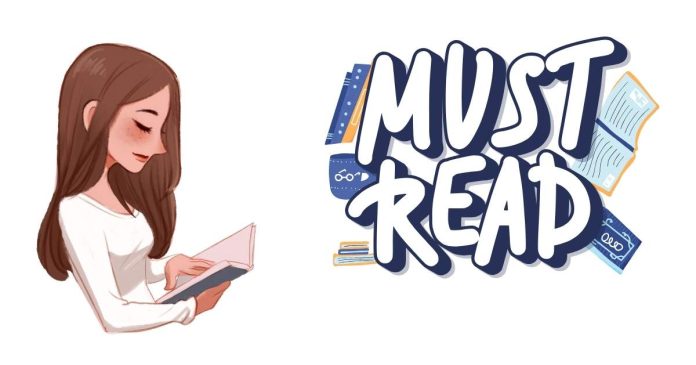Books have the power to change lives, inspire, and transport us to worlds beyond our imagination. From classics to contemporary masterpieces, here’s a list of 10 must-read books before you die. These selections cover a range of genres and themes, offering wisdom, adventure, and emotional depth. Each book provides something unique, a glimpse into the human condition, and a timeless story that will stay with you long after the last page.
1. “To Kill a Mockingbird” by Harper Lee
A Pulitzer Prize-winning classic, To Kill a Mockingbird tackles issues of racism, justice, and morality through the eyes of Scout Finch, a young girl in the American South. Written with compassion and humor, it explores the complexities of human nature and the importance of empathy.
Why read it?: This novel offers a powerful look at social justice and the impact of prejudice. It encourages readers to confront difficult truths about society and human nature.
2. “1984” by George Orwell
This dystopian novel paints a chilling picture of a totalitarian regime that uses surveillance, propaganda, and fear to control its citizens. Orwell’s 1984 is an exploration of the dangers of unchecked power and the consequences of living in a surveillance state.
Why read it?: 1984 remains incredibly relevant, reflecting on themes like government control, individual freedom, and the manipulation of truth—issues that continue to resonate in today’s political climate.
3. “Pride and Prejudice” by Jane Austen
Austen’s beloved novel is a delightful exploration of love, class, and societal expectations in 19th-century England. Pride and Prejudice follows Elizabeth Bennet as she navigates relationships, particularly with the enigmatic Mr. Darcy. The sharp wit and engaging characters make this a timeless classic.
Why read it?: This novel offers both a romantic story and a critique of social norms, with memorable characters that have stood the test of time.
4. “The Great Gatsby” by F. Scott Fitzgerald
Set in the roaring twenties, The Great Gatsby is a tale of love, obsession, and the American Dream. Through the eyes of narrator Nick Carraway, we meet the mysterious Jay Gatsby, whose wealth and lavish parties conceal a deep longing for a lost love.
Why read it?: Fitzgerald’s exploration of decadence, class disparity, and the unattainable dream captures the complexities of the American experience and remains profoundly relevant.
5. “One Hundred Years of Solitude” by Gabriel García Márquez
A magical realist masterpiece, One Hundred Years of Solitude follows the Buendía family across generations, blending history, myth, and personal drama. The novel is a poignant reflection on time, memory, and the human condition.
Why read it?: Márquez’s ability to combine the fantastical with the everyday creates a richly layered narrative, making this a compelling exploration of life and history.
6. “The Catcher in the Rye” by J.D. Salinger
Told from the perspective of the disillusioned Holden Caulfield, The Catcher in the Rye delves into the struggles of adolescence, alienation, and identity. Its narrative voice and themes of rebellion have made it a defining novel for generations of readers.
Why read it?: The novel’s authenticity and its exploration of growing up make it an essential coming-of-age story that resonates deeply with young readers and adults alike.
7. “Moby-Dick” by Herman Melville
One of the most important works in American literature, Moby-Dick tells the tale of Captain Ahab’s obsessive quest for revenge against the white whale that maimed him. A tale of obsession, fate, and humanity’s struggle against nature, this novel is both a seafaring adventure and a philosophical treatise.
Why read it?: Moby-Dick invites readers into an epic struggle with the forces of nature and the depths of the human psyche, making it a monumental literary work.
8. “The Brothers Karamazov” by Fyodor Dostoevsky
A philosophical and psychological novel, The Brothers Karamazov explores themes of faith, free will, morality, and familial conflict. The three Karamazov brothers each represent different aspects of human nature and grapple with profound existential questions.
Why read it?: Dostoevsky’s exploration of moral dilemmas and the search for truth offers deep insights into human behavior and the complexities of the soul.
9. “The Hobbit” by J.R.R. Tolkien
J.R.R. Tolkien’s The Hobbit is an enchanting tale of Bilbo Baggins, an ordinary hobbit who embarks on an extraordinary adventure. Filled with magic, mythical creatures, and moral lessons, this novel is a timeless entry point into Tolkien’s rich world of Middle-earth.
Why read it?: Beyond its thrilling adventure, The Hobbit introduces readers to a rich world full of imagination and wonder, making it a beloved classic for readers of all ages.
10. “Beloved” by Toni Morrison
Beloved is a haunting story of Sethe, an escaped slave who is haunted by the ghost of her dead child. Set in the post-Civil War South, the novel addresses themes of memory, trauma, and the lasting effects of slavery.
Why read it?: Toni Morrison’s narrative is profound, emotional, and challenging, offering a powerful reflection on history, identity, and the scars left by slavery.



